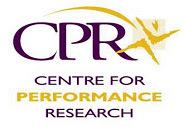Dear Judie,
I write in response to your call for support in appealing against the withdrawal of funding by the Arts Council for Wales for the work of the Centre for Performance Research.
I write as an expressive arts therapist who has benefited greatly from CPR’s provision of workshop training, lectures and research facilities in the development of my work in bringing healing, creativity and spirituality to the community. As a Voice Movement Therapist, using song, dance and drama as a therapeutic medium, I am particularly grateful for the International Festival of the Voice, as it brings to Wales the leading international exponents of the art skills that nourish my work.
As a parish minister in the Church of Scotland I recognise the primal origins of performance as healing ritual, and consequently have trained in the expressive arts therapies in recognition of the restorative power of singing and the performing arts in nurturing the ecstatic dimension of life, outside the specifically religious domain.
As a Welshman I am proud of the fact that wherever I go in the world our national heritage is respected in our reputation for valourizing the singing voice. How sad then that our National Assembly does not resist this decision of the ACW and recognise the need to foster our celebrated cultural asset, particularly in its unique ability to sustain the spirit and soul of the nation.
Wales has a peculiar affinity with the performing arts. Saunders Lewis, as a literary critic, spoke about “The Welsh Aesthetic”, by which he meant the national propensity towards the arts of poetry, song and instrumental music, ‘cerdd dafod a cerdd dant’; those relating with spirit, as distinct from the plastic and painterly arts relating with matter. Lewis says this, mindful of the spiritual origins of this aesthetic in the poetry and hymnology of William Williams, Pantycelyn. Of the eighteenth century, Williams was, temporally, the first of Europe’s poets in the subjective, Romantic mode. The inspiration came from the event of the great experience based Methodist revival that heralded that period in Wales which both enspirited the people and found enduring expression in the singing tradition that followed.
There is a more poignant and pressing reason for funding performance research in Wales. I write as the uncle of a welsh nephew who took his own life this July. In my attempts to reach out to him before he died I learned something that makes me want to comment on what we may now call the ‘Bridgend phenomenon’, that is, the current “unexplained” cluster of suicides of significant numbers of young people from that area of South Wales. Attempts to account for everything from the ‘flatland’ perspective of scientific materialism will indeed fail to explain the wholeness of life; there is a spiritual and soulful dimension which thankfully can be accessed by the arts.
On the morning of the 10th February I took part in leading a service of worship in Cardiff that was broadcast the next day on welsh language television. It took place in the Norman church of Llandeilo Talybont, now at St Fagan’s national history museum. It was transported and rebuilt there after standing outside our home village for over 700 years. Its whitewashed presence once stood as a beacon of hope for many generations, but now, with ironic symbolism, it has been put in a museum.
Having already travelled from Scotland, that afternoon I watched Wales beat Scotland at rugby at the Millennium Stadium, (Cymru am byth). To enspirit the occasion the crowd, as usual, sang Cwm Rhondda, to the words of William Williams, Pantycelyn, “ Guide me, O thou great Jehova, Pilgrim through this barren land”. Drugs, binge drinking and other synthetic forms of ecstacy are young people’s attempts to get bread from heaven to nourish their souls in a spiritually barren landscape. How much better it would be if we were to recover our national heritage in the expressive arts as a means to ecstatic experience, and make it available to all. Williams’, and thus Lewis’s point is that the expressive arts enlarge the capacity to experience life in all it’s fullness.
As I see it, although of course other arts initiatives may also serve this purpose, the unique resource of the Centre for Performance Research, though much in accord with our ‘national aesthetic’, is internationally valued, but locally unappreciated, and consequently may be lost to Wales. Properly deployed, it could become an even more valuable asset to our national heritage in Wales.
This sad time is no time for the Welsh Heritage Secretary to be seen losing a significant opportunity to alleviate the barrenness of the experience of our young. Here are some strong words from Marion Woodman the distinguished psychotherapist on the subject of funding in this area:
“What these [funders] do not realize is that young people do start out with imagination, with enthusiasm. Take away their disciplined outlets and they are birds without wings. Moreover, their frustration at not being able to soar results in rage, which they have no idea how to contain. Any one of the arts can give them a container strong enough to hold their natural frustration until it distills into paint, or dance, or song. Any teacher knows how much energy is required to teach a student how to hold the container solid until the emotion has time to resolve itself into an art form. This is what culture is.”
It is my hope that the Arts Council of Wales will not only reconsider it decision to cut funding for CPR but will discover in that review what a valuable national asset it has available to it, and will both further support and deploy CPR for the national good.
With best wishes for your continuing future,
Gareth Davies
Subscribe to:
Post Comments (Atom)

No comments:
Post a Comment